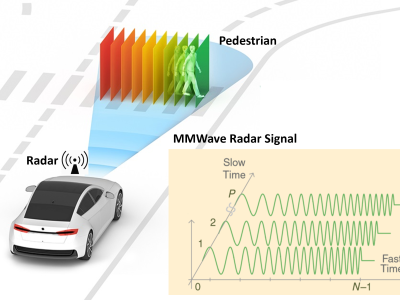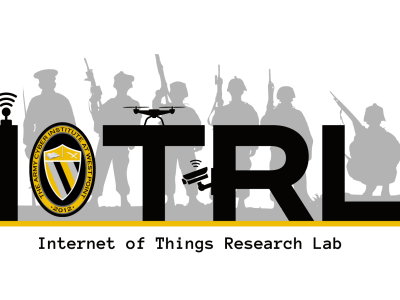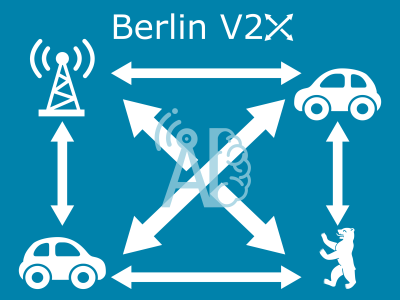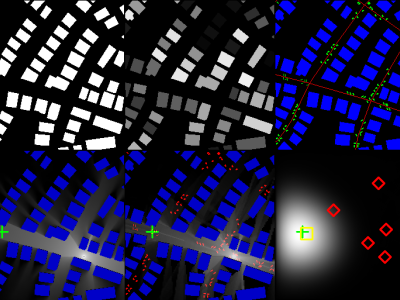CRAWDAD cnu/cdma

- Citation Author(s):
-
Youngseok Lee (Chungnam National University)
- Submitted by:
- CRAWDAD Team
- Last updated:
- DOI:
- 10.15783/C7H59F
 182 views
182 views
- Categories:
Abstract
Tcpdump data set collected from a CDMA 1x EV-DO network in South Korea.
We collected tcpdump data from a CDMA 1x EV-DO network in South Korea that provides high-speed "always on" Internet connectivity in a wide-area mobile environment.
last modified : 2007-10-11
release date : 2007-09-26
date/time of measurement start : 2005-08-17
date/time of measurement end : 2006-01-27
collection environment : Since cellular networks are equipped with wide coverage, mobility, and high data rates, the number of subscribers to the data service of cellular networks grows rapidly. The number of CDMA2000 1x EV-DO subscribers in South Korea was 7.7 million at the end of June 2004 according to the Ministry of Information and Communication in Korea (http://www.mic.go.kr). Mobile Internet users with CDMA 1x EV-DO terminals use Internet applications such as web browsing, multimedia streaming, or email. Therefore, the efficient transport protocol is important to achieve the maximum throughput over the error-prone wireless link with uctuating bandwidth, large delay, and jitter. in order to investigates the long-lived TCP bulk throughput over the CDMA 1x EV-DO service, we collected TCP traffic data from a CDMA 1x EV-DO network in South Korea that provides high-speed "always on" Internet connectivity in a wide-area mobile environment This data set allows for measurement-based analysis for TCP performance that could be used for the correct model of the 3G wireless link characteristic and for the real-world simulation of TCP behavior over the 3G wireless network.
network configuration : Code Division Multiplexing Access (CDMA) 1x EVolution-Data Only (EV-DO), which was finalized by the 3G Partnership Project 2 (3GPP2) and was published by the Telecommunication Industry Association (TIA) as Interim Standard (IS)-856, provides high-speed data service (2.4Mbps/153Kbps for downlink/uplink) with wide coverage and mobility. The CDMA 1x EV-DO service with high-speed "always on" connectivity in a wide-area mobile environment is being deployed throughout the world. In South Korea, since 2002, two carriers (KTF and SK Telecom) have deployed CDMA2000-based 1x EV-DO services which enable Video on Demand (VOD) and Multimedia Message Service (MMS). The CDMA 1x EV-DO system addes a high-speed data solution for existing IS-95 or CDMA 1x service providers while they maintain the compatibility with the frequency and RF modules. While the specification of 1x EV-DO is based on the High Data Rate (HDR) proposal from Qualcomm, Inc., it includes new features such as Incremental Redundancy (IR) Hybrid ARQ for improving system performance against the fast fading condition. The 1x EV-DO system provides large service coverage as well as handover with high bandwidth. In addition, it employs a time-shared downlink which serves only one user at any instant in time-multiplexed manner. Therefore, the mobile terminal calculates its Signal-to-Interference-plus-Noise Ratio (SINR) and determines the highest data rates among available 11 data rates with the calculated SINR at every slot. Based on the periodic report of the data rates every 1.67ms (1 slot duration), the base station schedules slot allocation. The characteristics and the performance of cellular links have been widely studied in 2/3G networks (i.e., General Packet Radio Service (GPRS), IS-95A, IS-95B, CDMA2000, and CDMA 1x EV-DO). It is well known that Forward Error Correction (FEC) and link-layer retransmissions have been implemented to defeat the challenging radio propagation environments. When a packet is transmitted, the channel has to be allocated to each packet, which also causes the variable delay. In CDMA 1x EV-DO networks, the peak rate of downlink is specified as 2.4Mbps and that of uplink as 153Kbps per user, and the maximum number of data users is 16. Recently, 1x EVolution Data and Video (EV-DV), which is being standardized, is expected to provide 3Mbps/1.5Mbps downlink/uplink data rates by integrating voice and data channels.
data collection methodology : A laptop was connected to the network of a CDMA 1x EV-DO carrier through the point-to-point protocol (PPP). TCP performance was tested with the Iperf tool which generates long-lived bulk traffic between the laptop and the Linux/FreeBSD machine. The packet traces were collected both at the server and at the client with tcpdump or windump.
Traceset
cnu/cdma/tcpdump
Tcpdump data set collected from a CDMA 1x EV-DO network in South Korea.
- files: 1x_EV-DO_downlink, 1x_EV-DO_uplink, 1x_downlink, 1x_EV-DO_downlink_ktx, 1x_EV-DO_timestamp
- description: We collected tcpdump data from a CDMA 1x EV-DO network in South Korea that provides high-speed "always on" Internet connectivity in a wide-area mobile environment.
- measurement purpose: Network Performance Analysis
- methodology: We used a laptop with a CDMA 1x EV-DO USB modem made by CMOTECH and a Linux or FreeBSD machine for our experiments. The operating systems of the laptop for the experiment is Microsoft Windows XP home edition. The operating systems of Unix machines for the experiments are Linux kernel 2.4 and FreeBSD 4.9 release. The laptop was connected to the network of a CDMA 1x EV-DO carrier through the point-to-point protocol (PPP). TCP performance has been tested with the Iperf tool which generates long-lived bulk traffic between the laptop and a Linux/FreeBSD machine. The Linux/FreeBSD machine was located at the research networks called "KOREN" which is connected to the network of a CDMA 1x EV-DO carrier via high-speed Korea Internet Exchange Points (KIX, KT-IX). Although the location is not the perfect place to monitor the CDMA 1x EV-DO link performance, it is assumed that the average TCP throughput of the CDMA 1x EV-DO subscribers could be approximately found from many runs of experiments. The Maximum Segment Size (MSS) was set to 1460 or 1448 bytes, SACK was enabled, and the duration of the test was 150 - 300 seconds. It is believed that the test duration is long enough to observe the TCP steady state performance, since the outstanding window has become stable within 20 seconds in our measurements. The packet traces have been collected both at the server and at the client with tcpdump or windump.
cnu/cdma/tcpdump Traces
- 1x_EV-DO_downlink: Tcpdump trace colleced from CDMA 1x EV-DO Downlink.
- configuration: This trace was collected from the downlink of a CDMA 1x EV-DO network. A laptop was connected to the network of a CDMA 1x EV-DO carrier through the point-to-point protocol (PPP). TCP performance has been tested with the Iperf tool which generates long-lived bulk traffic between the laptop and a Linux/FreeBSD machine. The Linux/FreeBSD machine was located at the research networks called "KOREN" which is connected to the network of a CDMA 1x EV-DO carrier via high-speed Korea Internet Exchange Points (KIX, KT-IX). By downlink traffic, we mean the traffic from the Linux/FreeBSD machine to the laptop. Traces 1-6 and 8-9 below are sender-receiver pairs. For trace 7 below, the receiver trace was not captured because that the throughput and loss rate could be examined with the sender trace. At the TCP sender and receiver, we coud enable or disable the TCP timestamp option. Traces tagged with "TCP timestamp" below are captured after the TCP timestamp option enabled at both the sender and the receiver. 1. CDMA 1x EV-DO Downlink, 20050817 tcpdump data at the iperf sender (34 connections, 5-minute duration iperf, TCP timestamp) 2. CDMA 1x EV-DO Downlink, 20050817 tcpdump data at the iperf receiver (34 connections, 5-minute duration iperf, TCP timestamp) 3. CDMA 1x EV-DO Downlink, 20050817-2 tcpdump data at the iperf sender (16 connections, 5-minute duration iperf, TCP timestamp) 4. CDMA 1x EV-DO Downlink, 20050817-2 tcpdump data at the iperf receiver(16 connections, 5-minute duration iperf, TCP timestamp) 5. CDMA 1x EV-DO Downlink, 20050820 tcpdump data at the iperf sender (38 connections, 5-minute duration iperf, TCP timestamp) 6. CDMA 1x EV-DO Downlink, 20050820 tcpdump data at the iperf receiver(38 connections, 5-minute duration iperf, TCP timestamp) 7. CDMA 1x EV-DO Downlink, 20050828 tcpdump data at the iperf sender (30 connections, 5-minute duration iperf, TCP timestamp) 8. CDMA 1x EV-DO Downlink, 20050907 tcpdump data at the iperf sender (116 connections, 2.5-minute duration iperf, TCP timestamp) 9. CDMA 1x EV-DO Downlink, 20050907 tcpdump data at the iperf receiver (116 connections, 2.5-minute duration iperf, TCP timestamp)
- format:
tcpdump format
- 1x_EV-DO_uplink: Tcpdump trace colleced from CDMA 1x EV-DO Uplink.
- configuration: This trace was collected from the uplink of a CDMA 1x EV-DO network. A laptop was connected to the network of a CDMA 1x EV-DO carrier through the point-to-point protocol (PPP). TCP performance has been tested with the Iperf tool which generates long-lived bulk traffic between the laptop and a Linux/FreeBSD machine. The Linux/FreeBSD machine was located at the research networks called "KOREN" which is connected to the network of a CDMA 1x EV-DO carrier via high-speed Korea Internet Exchange Points (KIX, KT-IX). By uplink traffic, we mean the traffic from the laptop to the Linux/FreeBSD machine. Traces 1-2 below are sender-receiver pairs. For traces 3-4 below, the receiver trace was not captured because that the throughput and loss rate could be examined with the sender trace. At the TCP sender and receiver, we coud enable or disable the TCP timestamp option. Traces tagged with "TCP timestamp" below are captured after the TCP timestamp option enabled at both the sender and the receiver. 1. CDMA 1x EV-DO Uplink, 20050821 tcpdump data at the iperf sender (35 connections, 5-minute duration iperf) 2. CDMA 1x EV-DO Uplink, 20050821 tcpdump data at the iperf receiver (35 connections, 5-minute duration iperf) 3. CDMA 1x EV-DO Uplink, 20050906 tcpdump data at the iperf sender (146connections, 2.5-minute duration iperf, TCP timestamp) 4. CDMA 1x EV-DO Uplink, 20050907 tcpdump data at the iperf sender (110connections, 2.5-minute duration iperf, TCP timestamp)
- format:
tcpdump format
- 1x_downlink: Tcpdump trace colleced from CDMA 1x Downlink.
- configuration: This trace was collected from the downlink (a Linux/FreeBSD machine to a mobile labtop) of a CDMA 1x network. For traces 1-2 below, the receiver trace was not captured because that the throughput and loss rate could be examined with the sender trace. 1. CDMA 1x Downlink, 20050821 tcpdump data at the iperf sender (11 connections, 5-minute duration iperf) 2. CDMA 1x Downlink, 20050830 tcpdump data at the iperf sender (38 connections, 5-minute duration iperf)
- format:
tcpdump format
- 1x_EV-DO_downlink_ktx: Tcpdump trace colleced from CDMA 1x EV-DO Downlink at a fast train moving in the speed of 295Km/hour.
- configuration: This trace was collected from the downlink of a CDMA 1x EV-DO network when a mobile client (laptop) was in a fast train, called KTX. During the measurement, the train was moving about 70 Km in the speed of 295 Km/hour from Seoul to Chonan in Korea. The laptop was connected to the network of a CDMA 1x EV-DO carrier through the point-to-point protocol (PPP). TCP performance has been tested with the Iperf tool which generates long-lived bulk traffic between the laptop and a Linux/FreeBSD machine. The Linux/FreeBSD machine was located at the research networks called "KOREN" which is connected to the network of a CDMA 1x EV-DO carrier via high-speed Korea Internet Exchange Points (KIX, KT-IX). By downlink traffic, we mean the traffic from the laptop to the Linux/FreeBSD machine. For trace 1 below, the receiver trace was not captured because that the throughput and loss rate could be examined with the sender trace. 3-minute trace was enough to capture the TCP steady-state behavior, so the latter experiements was performed for 3 minutes to reduce the experiment time. 1. CDMA 1x EV-DO Downlink at KTX express train from Seoul to Chonan, 20050830 tcpdump data at the iperf sender (2 connections, 16-minute duration iperf, 3-minute duration iperf)
- format:
tcpdump format
- 1x_EV-DO_timestamp: Tcpdump trace colleced from CDMA 1x EV-DO Downlink with TCP timestamp option enabled.
- configuration: At the TCP sender and receiver, we coud enable or disable the TCP timestamp option. To compare the typical packet loss patterns of TCP connections with/without the TCP timestamp option over CDMA 1x EV-DO downlink, we collected this trace from the downlink of a CDMA 1x EV-DO networkwith TCP timestamp enabled. A laptop was connected to the network of a CDMA 1x EV-DO carrier through the point-to-point protocol (PPP). TCP performance has been tested with the Iperf tool which generates long-lived bulk traffic between the laptop and a Linux/FreeBSD machine. The Linux/FreeBSD machine was located at the research networks called "KOREN" which is connected to the network of a CDMA 1x EV-DO carrier via high-speed Korea Internet Exchange Points (KIX, KT-IX). By downlink traffic, we mean the traffic from the Linux/FreeBSD machine to the laptop. For traces 1-4 below, the receiver trace was not captured because that the throughput and loss rate could be examined with the sender trace. 1. CDMA 1x EV-DO Downlink, 20060125 tcpdump data at the iperf sender (20 connections, 4.5 minute iperf, TCP timestamp) 2. CDMA 1x EV-DO Downlink, 20060125 tcpdump data at the iperf sender (8 connections, 4.5 minute iperf, TCP timestamp) 3. CDMA 1x EV-DO Downlink, 20060126 tcpdump data at the iperf sender (32 connections, 4.5 minute iperf, NO TCP timestamp) 4. CDMA 1x EV-DO Downlink, 20060127 tcpdump data at the iperf sender (59 connections, 4.5 minute iperf, NO TCP timestamp)
- format:
tcpdump format
Instructions:
The files in this directory are a CRAWDAD dataset hosted by IEEE DataPort.
About CRAWDAD: the Community Resource for Archiving Wireless Data At Dartmouth is a data resource for the research community interested in wireless networks and mobile computing.
CRAWDAD was founded at Dartmouth College in 2004, led by Tristan Henderson, David Kotz, and Chris McDonald. CRAWDAD datasets are hosted by IEEE DataPort as of November 2022.
Note: Please use the Data in an ethical and responsible way with the aim of doing no harm to any person or entity for the benefit of society at large. Please respect the privacy of any human subjects whose wireless-network activity is captured by the Data and comply with all applicable laws, including without limitation such applicable laws pertaining to the protection of personal information, security of data, and data breaches. Please do not apply, adapt or develop algorithms for the extraction of the true identity of users and other information of a personal nature, which might constitute personally identifiable information or protected health information under any such applicable laws. Do not publish or otherwise disclose to any other person or entity any information that constitutes personally identifiable information or protected health information under any such applicable laws derived from the Data through manual or automated techniques.
Please acknowledge the source of the Data in any publications or presentations reporting use of this Data.
Citation:
Youngseok Lee, cnu/cdma, https://doi.org/10.15783/C7H59F , Date: 20070926
Dataset Files
- 1x_EV-DO_downlink
- 20050817-2-receiver.tar.gz (5.8 MB)
- 20050817-2-sender.tar.gz (5.35 MB)
- 20050817-receiver-all.dump.gz (15.73 MB)
- 20050817-sender-all.dump.gz (14.52 MB)
- 20050820-receiver-all.dump.gz (20.38 MB)
- 20050820-sender-all.dump.gz (18.75 MB)
- 20050828-sender-all.dump.gz (11.21 MB)
- 20050907-downlink-receiver.dump.gz (24.94 MB)
- 20050907-downlink-sender.dump.gz (22.73 MB)
- index.html (3.25 KB)
- 1x_EV-DO_downlink_ktx
- 1x_EV-DO_timestamp
- 1x_EV-DO_uplink
- 1x_downlink
















